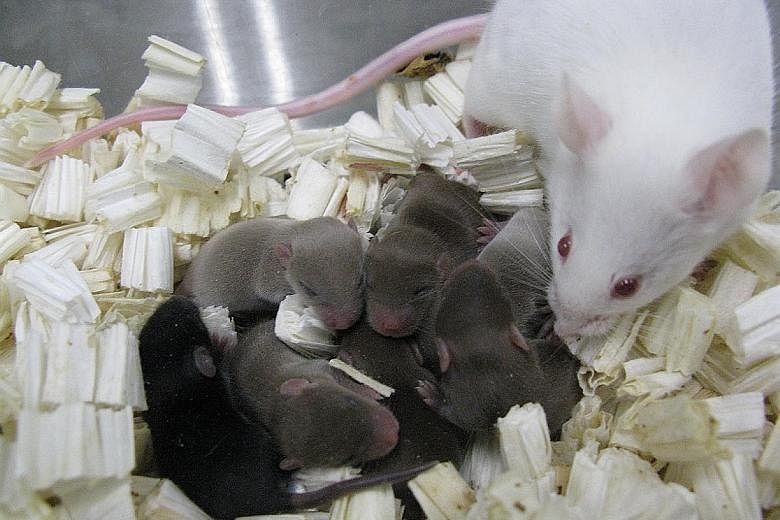NEW YORK • Litters of healthy mice - or "space pups" - prove that mouse sperm can be freeze-dried, flown around on the International Space Station for nine months, and then used to make babies.
Researchers from Japan, looking ahead to a time when humans spend years in space habitats and might want to use frozen sperm and eggs there, wanted to find out if prolonged exposure to space radiation would affect fertility or the health of any offspring.
Their results, reported in Proceedings Of The National Academy Of Sciences on Monday, say the sperm did suffer slightly increased DNA damage, compared with freeze- dried Earth sperm, but the space version did the job when it came to fertilising eggs.
Birth rates and male-to-female ratios were normal, and the space pups went on to have healthy pups of their own. Apparently, after fertilisation, nature somehow fixed the DNA damage.
The scientists from the University of Yamanashi found that freeze-dried mouse sperm can be reconstituted with water.
Why do such a thing? At an altitude of 400km, where the station orbits, radiation is more than 100 times stronger than on Earth.
The findings seem like good news for space travellers, but then again, mice are not men.
The researchers say that longer times in space might produce more DNA damage than cells can repair.
Hundreds of other experiments are under way on the International Space Station.
The National Aeronautics and Space Administration is particularly interested in the health of astronauts. Without gravity, bones lose strength and eyes are squashed, affecting vision.
Research on the station has helped prove that exercise greatly slows bone loss, but the eyeball mystery is still not well understood.
NYTIMES

